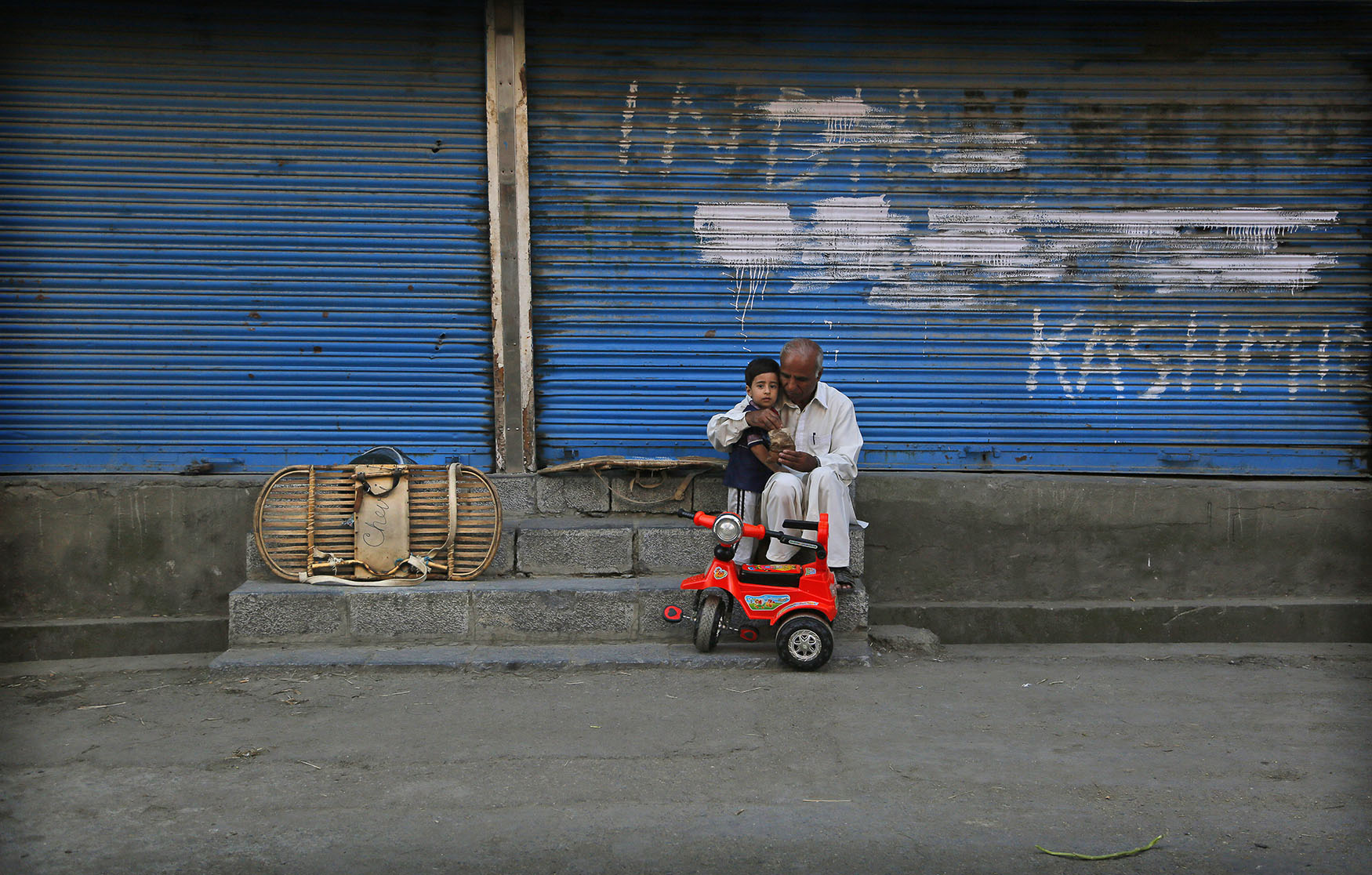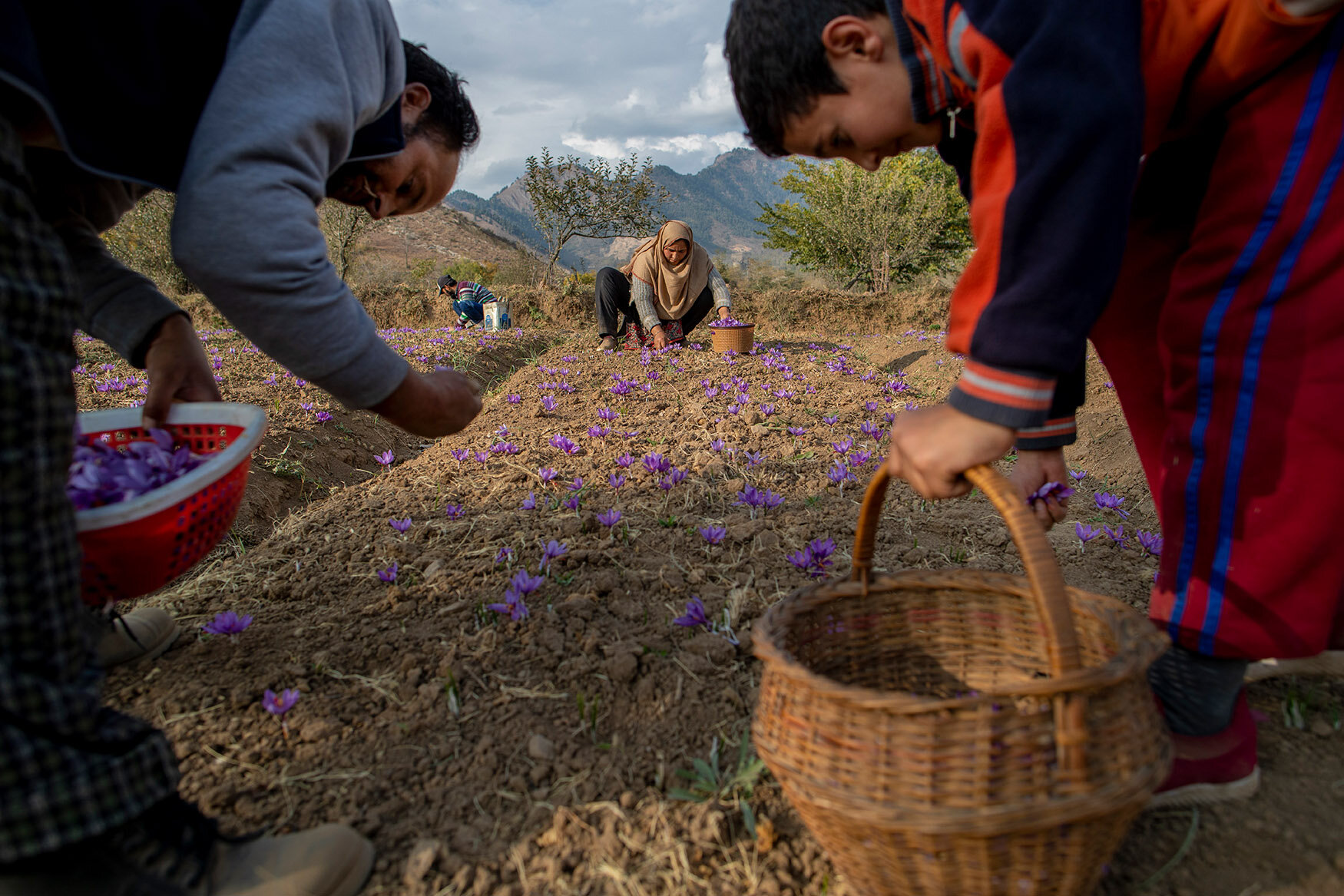Animal attacks taking their toll in Kashmir

Amid the long-raging deadly strife in Indian-controlled Kashmir, another conflict is silently taking its toll on the Himalayan region’s residents: the conflict between man and wild animals.
According to official data, at least 67 people have been killed and 940 others injured in the past five years in attacks by wild animals in the famed Kashmir Valley, a vast collection of alpine forests, connected wetlands and waterways known as much for its idyllic vistas as for its decades-long armed conflict between Indian troops and rebels.
The Himalayan black bear is at the heart of this trouble. Experts say over 80% of the deaths and maulings are due to attacks by black bears.
In August, a black bear pounced on Manzoor Ahmad Dar at his vegetable farm. He is still recovering from a serious head injury.
The Dardkhor village, where several cases of wild animals attacking villagers have been reported is seen at dusk on the outskirts of Srinagar, Indian controlled Kashmir, Monday, Aug. 24, 2020. (AP Photo/Mukhtar Khan)
Mohammad Yaqoob who survived a wild bear attack moves towards his home at Dardkhor village in Srinagar, Indian controlled Kashmir, Monday, Aug. 24, 2020. (AP Photo/Mukhtar Khan)
A leopard looks from a tree inside an enclosure at the Dachigam National Park on the outskirts of Srinagar, Indian controlled Kashmir, Saturday, Sept. 12, 2020. (AP Photo/Mukhtar Khan)
Zulikha shows a picture of her husband Showket Ahmad who was killed by a bear last year at Dardkhor village in Srinagar, Indian controlled Kashmir, Monday, Aug. 24, 2020. (AP Photo/Mukhtar Khan)
Last year, Showkat Ahmed Khatana, a 50-year-old nomad, was killed while trying to save his younger brother from a black bear attack near their home in the Harwan area in the outskirts of the region’s main city, Srinagar. His brother was injured in the attack.
Nestled between mountain peaks and plateaus, Kashmir has witnessed a rapid change in how people are using the land. Vast paddy fields have been converted into mostly apple orchards. New neighborhoods have popped up around wetlands and forest areas. Deforestation and climate change have added to woes.
In turn, experts say, animals are approaching human settlements in search of food and shelter, leading to a sharp increase in attacks.
“Animals too have adopted to this change,” said Rashid Naqash, Kashmir’s chief wildlife warden. “And interestingly, they find their food and shelter easily available now in orchards and forest foothills where humans have settled.”
Naqash said that previously, black bears would usually go into hibernation during the winter. "But now they’re active even in deep, harsh winters and prowl throughout the year,” he said.
The conflict has also intensified because the wildlife population has increased as animal poaching has almost stopped due to the tense security situation and the presence of Indian troops in forest areas. Bears have easy access to food from the kitchen waste of the armed forces’ camps.
Animals also have found their habitat broken up in the mountainous region, which is crisscrossed by thousands of miles (kilometers) of barbed wire and patrolled by tens of thousands of Indian troops.
Ghulam Mohideen Sheikh, who survived a wild bear attack outside his home, shows his injuries at Khimber village in Srinagar, Indian controlled Kashmir, Sunday, Sept. 6, 2020. (AP Photo/Mukhtar Khan)
Manzoor Ahmad Dar rests inside a Mosquito net after he was injured in a bear attack inside his house at Khimber village in Srinagar, Indian controlled Kashmir, Sunday, Sept. 6, 2020. (AP Photo/Mukhtar Khan)
A black bear yawns at its enclosure at the Dachigam National Park on the outskirts of Srinagar, Indian controlled Kashmir, Saturday, Sept. 12, 2020. (AP Photo/Mukhtar Khan)
Mohammad Younis stands with his dog Balu outside his home at Dardkhor village, where several cases of wild animals attacking villagers have been reported, in Srinagar, Indian controlled Kashmir, Monday, Aug. 24, 2020. (AP Photo/Mukhtar Khan)
An empty bear cage is seen at the Dachigam National Park on the outskirts of Srinagar, Indian controlled Kashmir, Saturday, Sept. 12, 2020. (AP Photo/Mukhtar Khan)
Mohammad Siduiq Kumar poses for a photograph inside his home after he was injured in a bear attack at Kangan, northeast of Srinagar, Indian controlled Kashmir, Tuesday, Sept. 8, 2020. (AP Photo/Mukhtar Khan)
Haseena,8, right and Muskan, 14, play inside their home at Dardkhor village, where several cases of wild animals attacking villagers have been reported, in Srinagar, Indian controlled Kashmir, Monday, Aug. 24, 2020. (AP Photo/Mukhtar Khan)
Zamrooda embraces her son Sahil Majeed whom she saved from a leopard attack in 2009 in Srinagar, Indian controlled Kashmir, Thursday, Sept. 10, 2020. (AP Photo/Mukhtar Khan)
Mohammad Younis and his relative Lal use a light from a mobile phone as they walk outside their home at Dardkhor village, an area that experiences frequent attacks from wild animals, on the outskirts of Srinagar, Indian controlled Kashmir, Monday, Aug. 24, 2020. (AP Photo/Mukhtar Khan)
Kashmiri girl Muskan, 14, displays an axe that the family carries with them when they go outdoors at night to protect themselves from wild animals, outside her home at Dardkhor village, on the outskirts of Srinagar, Indian controlled Kashmir, Monday, Aug. 24, 2020. (AP Photo/Mukhtar Khan)
Text from AP News story, AP PHOTOS: Animal attacks taking their toll in Kashmir, by Mukhtar Khan





